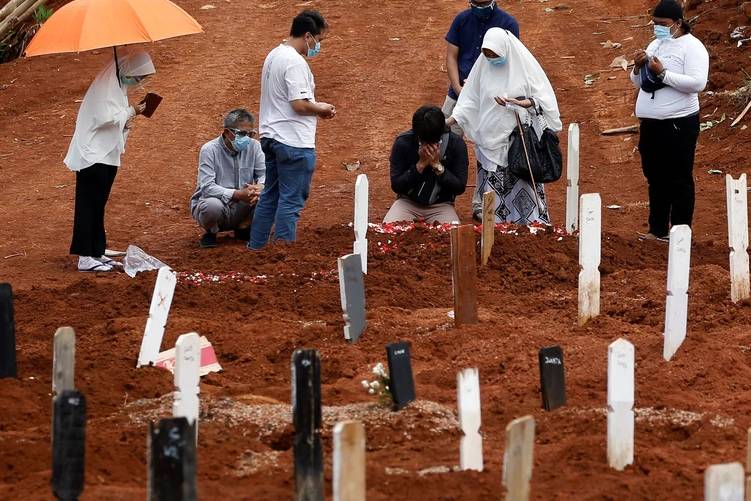COVID-19 deaths worldwide exceeded 2 million Friday, according to Johns Hopkins University, a year after the coronavirus was first detected in Wuhan, China.
“Behind this terrible number are names and faces, the smile that will now only be a memory, the seat forever empty at the dinner table, the room that echoes with the silence of a loved one,” U.N. Secretary-General Antonio Guterres told reporters Friday.
Guterres also said the death toll “has been made worse by the absence of a global coordinated effort,” and added that “science has succeeded, but solidarity has failed.”
The U.S. remains at the top of the list with the most cases and deaths. Johns Hopkins reports more than 23 million COVID-19 cases in the U.S., with a death toll rapidly approaching 400,000.
Some states, having vaccinated their frontline workers, have opened vaccinations to older people but have been overrun with requests. Medical facilities are on the verge of running out of vaccines. In many instances, the technology used to take the requests has crashed.
President-elect Joe Biden announced a nearly $2 trillion American Rescue Plan for the pandemic and the U.S. economic crisis Thursday, with $400 billion of the package slated for the COVID-19 outbreak.
“A crisis of deep human suffering is in plain sight,” Biden said.
The U.S. Centers for Disease Control and Prevention warned Friday that a newly detected and highly contagious variant of the coronavirus might become the dominant strain in the U.S. by March.
The variant, first detected in the United Kingdom, threatens to exacerbate the coronavirus crisis in the U.S., where daily infection and hospitalization records are commonplace.
The CDC said the variant apparently does not cause more severe illness but is more contagious than the current dominant strain.
U.S. health officials called for more mitigation efforts such as mask wearing and social distancing.
China reported its first COVID-19 death in eight months Thursday amid a surge in the country’s northeast as a World Health Organization team arrived in Wuhan to investigate the beginning of the pandemic.
China’s death toll is more than 4,600, a relatively low number resulting from the country’s stringent containment and tracing measures.
China has imposed various lockdown measures on more than 20 million people in Beijing, Hebei and other areas to contain the spread of infections before the Lunar New Year holiday in February.
The relatively low number of COVID-related deaths in China has raised questions about China’s tight control of information about the outbreak.
The WHO investigative team arrived Thursday after nearly a year of talks between China and the WHO, as well as diplomatic disagreements between China and other countries that demanded that China allow a thorough, independent investigation.
Two members of the 10-member team were stopped in Singapore after tests revealed antibodies to the virus in their blood, while the rest of the team immediately entered a 14-day quarantine period in Wuhan before launching their investigation.
The coronavirus was first detected in Wuhan in late 2019 and quickly spread throughout the world.
Officials said Thursday that infections in the northeastern Heilongjiang province had surged to their highest levels in 10 months, nearly tripling during that period.
Elsewhere in Asia, Japanese authorities expanded a state of emergency to stop a surge in coronavirus cases.
Coronavirus infections and related deaths have roughly doubled in Japan over the past month to more than 317,000 cases and more than 4,200 deaths, according to Johns Hopkins University.
The emergency was initially declared a week ago and was expanded to cover seven new regions. The restrictions are not binding, and many people have ignored requests to avoid nonessential travel, prompting the governor to voice concern about the lack of commitment to the guidelines.
Indonesia reported 12,818 new infections Friday, its largest daily tally.
Hungary said it planned to buy vaccines from China’s Sinopharm. If the country’s medical officials sign off on the deal, Hungary would be the first European Union country to purchase the Chinese product.
(VOA)

